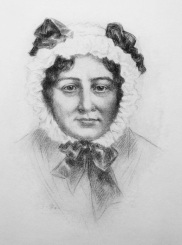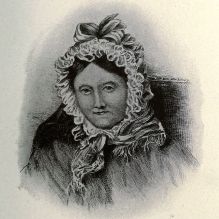
A chance meeting in the ladies’ lavatory at a wedding marked the start of the friendship between last week’s guest interviewees, Polly Coles and Liz Jensen.
This got us thinking about some of the other unplanned first encounters of writers we’ve featured on Something Rhymed.
Susan Barker and Rima Haque, for instance – saw their paths collide back in 1999 at the Statue of Liberty, where they both had summer jobs. Rachel Connor and Antonia Honeywell formed an immediate connection when they happened to be paired as students in advance of their first MA Novel Writing workshop at Manchester University.
Of the monthly profiled writers, some like Charlotte Brontë and Elizabeth Gaskell and Harriet Beecher Stowe and George Eliot knew of each other by reputation before they met. Diana Athill formed a connection with Jean Rhys through her job as an editor at André Deutsch, and the friendship between Maya Angelou and Toni Morrison really blossomed when they both found themselves appearing at the Hay Festival in Wales.
But others, especially those who met early on in their literary careers, got to know each other under circumstances largely governed by happy twists of coincidence.
What would have happened if Vera Brittain and Winifred Holtby hadn’t each passed their university entrance exams and found themselves at the same Oxford college? Or if the teacher’s job in L.M. Montgomery’s hometown on Prince Edward Island had been given to someone other than Nora Lefurgey? Or Anne Sharp hadn’t gone to work as a governess with Jane Austen’s family?
Some might say that, with such similar political views and overlapping fields of work, Brittain and Holtby would likely have met eventually, but one can more easily imagine a life in which Austen had to manage without Sharp’s friendship, and Montgomery never found a kindred spirit in Lefurgey.
And since both Brittain and Holtby were always keen to credit the other for the role they had played in shaping their own success, this raises the question as to whether each woman’s life might have run a quite different course without the help of her valued friend.
Unlike the vast majority of our monthly guest bloggers and featured authors, who were already well on their way with their writing careers by the time they became acquainted, regular readers of Something Rhymed will know that when Emma Claire and I met neither of us had published a single article or story.
In fact, we had been scribbling in secret up until then, and hadn’t had the courage to share our ambitions to write with anyone else.
It’s nice to think that, having so many things in common, we would have found each other, perhaps on-line, eventually – an advantage female writers of today have over those in Montgomery or Austen’s times.
But it’s far nicer to be able to recall the fact that we’ve been there for each other through all the ups and downs of our writing journeys, and to think that, as Brittain once said about Holtby: ‘although we didn’t exactly grow up together, we grew mature together, and that is the next best thing’.






